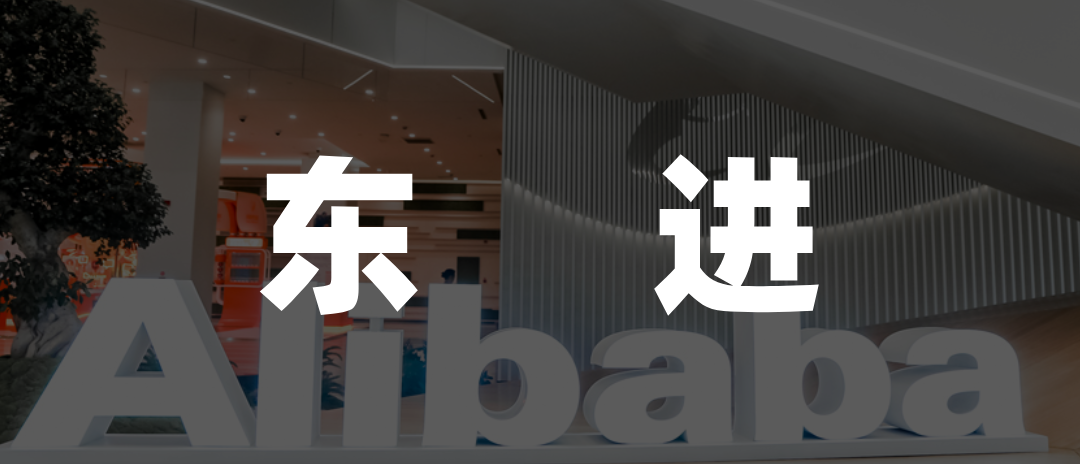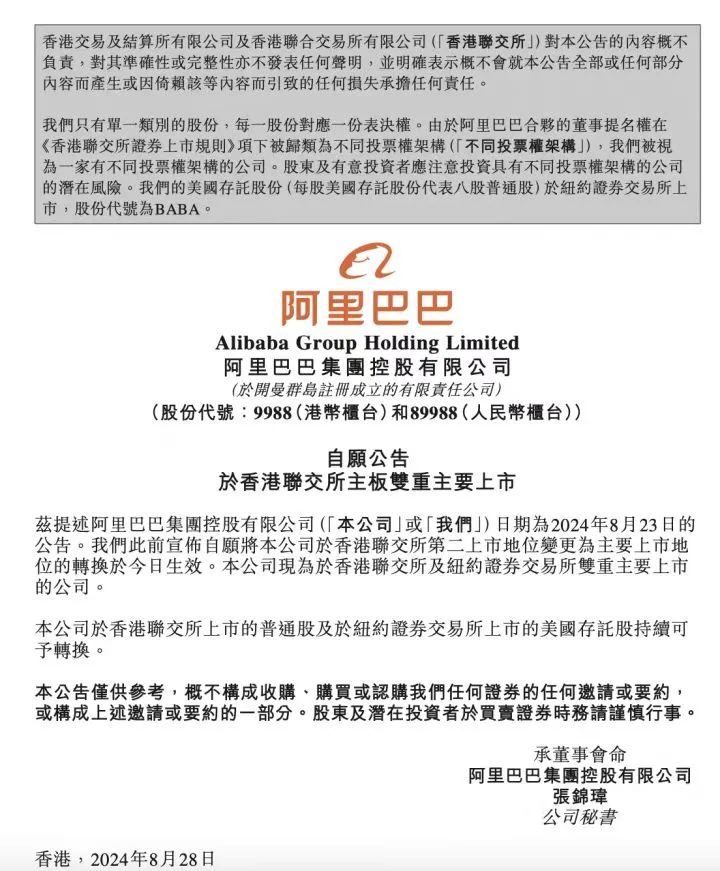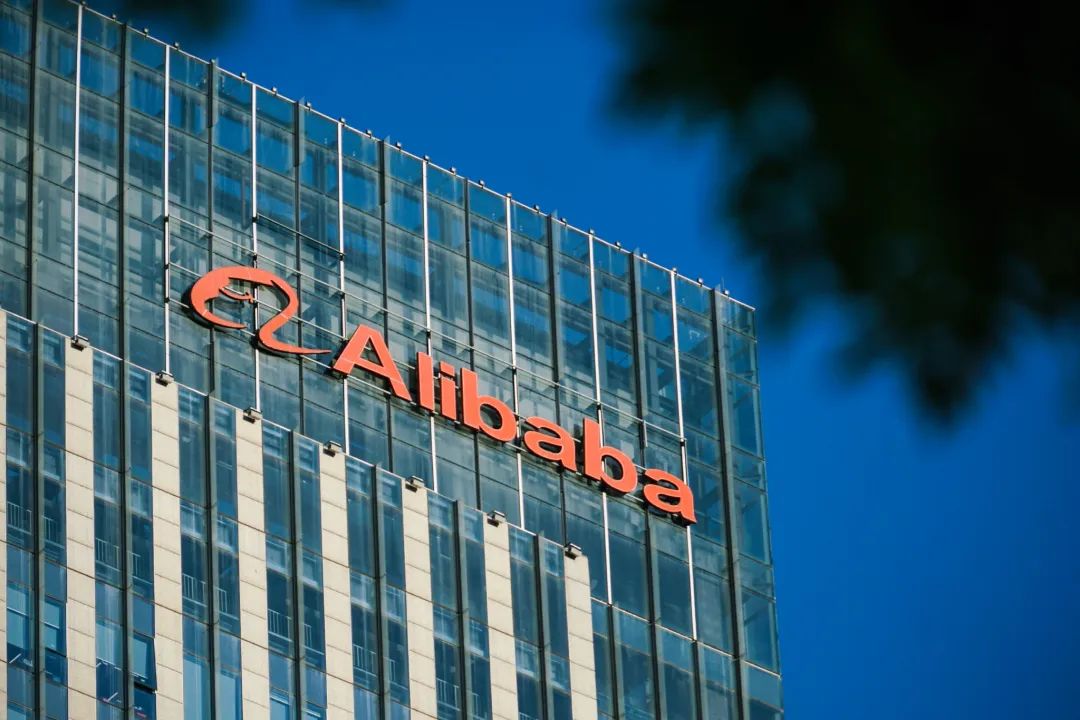Ali does not accept its fate
![]() 09/03 2024
09/03 2024
![]() 410
410

The national tone has been set! A series of positive signals have injected a shot in the arm for the platform economy, ushering in a new era for Ali Group.
Recently, Ali Group has been reporting good news frequently!
First, on August 28, Alibaba completed its dual primary listing in Hong Kong. Shortly after, on the last working day of August, the State Administration for Market Regulation officially announced that Alibaba had completed its three-year rectification. With the clarity of national policies, the platform economy has ushered in significant positive developments, and Alibaba's share price responded positively.
As a leading player in the industry, Alibaba has faced continuous pressure on its market share and market value amidst the rise of emerging forces such as Pinduoduo and Douyin. In recent years, Alibaba has undergone drastic organizational restructuring and personnel changes internally, with fluctuating performance, leading to questions and doubts from the outside world.
In response, Jack Ma reflected through an internal letter, candidly acknowledging the mistakes Alibaba had made in the past few years and expressing the need to restart with a clean slate to face market challenges.
Change begins with the founder's mindset, implicitly conveying stubbornness and ferocity: Alibaba does not accept its fate.
01 Performance Rebounds, Alibaba Retreats West and Advances East

The timing of Alibaba's return to the Hong Kong stock market was impeccable.
On August 15, Alibaba released its financial results for the second quarter of 2024, reporting revenue of RMB 243.24 billion, up 4% year-on-year from RMB 234.156 billion in the same period last year. All business segments, except for Taobao and Tmall, showed positive growth, and as Alibaba's largest business, Taobao and Tmall returned to double-digit growth in GMV after two years in the first quarter of 2024 and achieved rapid GMV growth in the second quarter.
The positive data was met with market acclaim, but before that, Alibaba had faced difficult times.
In 2019, after Jack Ma retired, Alibaba entered a tumultuous period with setbacks such as the failed IPO of its affiliate Ant Group, competition from Pinduoduo, and the entry of Douyin. These changes led to a loss of market confidence in Alibaba, which was reflected in its share price. After reaching a peak of over USD 800 billion in 2020, Alibaba's share price fell for three consecutive years and is now less than a quarter of its peak value.
Alibaba's decline was mainly due to a bottleneck in user growth, leading to a divergence in strategy between embracing merchants and embracing users, creating a vicious cycle.
The shaking of market confidence indirectly led Alibaba to continuously repurchase its own shares. In 2023, Alibaba spent USD 9.5 billion repurchasing a total of 897.9 million ordinary shares. In the past fiscal year 2024, Alibaba invested a total of USD 12.5 billion in repurchases, ranking first among Chinese stocks listed in the US in terms of repurchase scale.
However, Alibaba's share price has remained unstable, especially in an increasingly confrontational international business environment. Chinese stocks listed in the US have collectively suffered setbacks, and even Alibaba, a strong player, has not been spared. The external business environment is not conducive to Alibaba's survival.
Against this backdrop, Alibaba's strategic shift from west to east became inevitable, with Hong Kong naturally becoming the destination for Alibaba's secondary listing.

It is important to clarify that Alibaba has already completed a secondary listing in Hong Kong, and this latest move marks its dual primary listing in both the US and Hong Kong.
A secondary listing refers to an already listed overseas issuer using that exchange as its primary listing venue while also applying for a secondary listing on the Hong Kong Stock Exchange. After a secondary listing, the issuer's shares can be traded concurrently on both the primary listing venue and in Hong Kong.
A dual primary listing, on the other hand, refers to an issuer primarily listed on one or more exchanges simultaneously applying for a primary listing on the Hong Kong Stock Exchange. The key difference from a secondary listing is that the trading venues have equal status.
Put simply, Alibaba's Hong Kong share price will be independent of its US share price or the US market.
This is crucial for a Chinese stock of Alibaba's size. After announcing the dual primary listing on August 23, Alibaba's share price in the US market rose by 3%, hitting a new high since May, with the market generally optimistic.
This sentiment has been a long time coming for Alibaba.
02 Alibaba, Once Cut Down, Begins to Grapple with Pinduoduo

It's hard to imagine whether Jack Ma has enjoyed a comfortable retirement in recent years, but from the outside world's perspective, he has maintained an active state despite his retirement.
In 2019, Daniel Zhang succeeded Jack Ma as CEO of Alibaba, taking the helm of the company that had already navigated the internet boom for over a decade. During this time, Alibaba expanded aggressively on both the capital and business fronts, incorporating dozens of companies such as Youku, Xiami Music, Wanwang, Amap, Ele.me, Intime Department Store, and RT-Mart into its business empire. At that time, competitors like Pinduoduo and Douyin had yet to emerge as formidable forces, and the idea of traffic depletion had not yet gained traction in public opinion. As a result, Alibaba reacted slowly to the emerging crises, only waking up when its competitors were already at its doorstep.
It was Pinduoduo that jolted Alibaba awake. When Pinduoduo launched in 2015, it focused on group buying in the agricultural products sector and created the innovative and highly effective "cut a price" fission strategy to expand its user base. Between 2016 and 2018, Pinduoduo's annual active buyers grew by around 100 million each year. Although Pinduoduo's initial user growth was rapid, its business did not overlap significantly with Alibaba's e-commerce target audience.
The real shift began in 2019, when Pinduoduo launched its "Billion Subsidy" campaign during the 618 shopping festival. As a result, Alibaba's user base in megacities and large cities began to shift towards Pinduoduo. According to statistical data, Pinduoduo's user growth in megacities and large cities reached 38.2% and 43.4%, respectively, from 2019 to 2021.

An even bigger blow to Alibaba came on the trading day after Pinduoduo released its third-quarter financial results last year. With total revenue of RMB 68.8404 billion, up 94% year-on-year, Pinduoduo's share price surged by over 18%, and its total market value surpassed that of Alibaba.
Losing to Pinduoduo, which originated in rural areas, was a significant blow to Alibaba. Employees within the company expressed pessimism, with one Pessimistically saying, "That insignificant 'cut a price' is quickly becoming the big brother."
Faced with this dilemma, Alibaba's initial strategy was to follow and imitate its competitors. Since the end of last year, Taobao has engaged in close competition with Pinduoduo, emphasizing low prices and tilt towards user benefits. Strategies such as pay-after-use, no-questions-asked refunds, and free shipping for 88VIP returns can all be traced back to Pinduoduo's operating model.
However, while Taobao achieved high single-digit growth in GMV and double-digit growth in order volume year-on-year, with the 88VIP membership base exceeding 42 million, the side effects of this close competition became apparent: Taobao's customer management revenue (CMR) growth rate plummeted, indicating that merchants were not benefiting from the low-price strategy.
Alibaba found itself in an awkward position, unable to replicate Pinduoduo's success despite adopting similar tactics. While Pinduoduo leveraged its high efficiency, low prices, and focus on sellers to gain market share, Alibaba struggled to find a strategy that suited its own values and ecosystem.
In response, Alibaba made significant adjustments, revising its no-questions-asked refund policy to strengthen protection for merchants. At the same time, Taobao began to shift away from a low-price strategy and focus on realizing user value.
However, abandoning low prices would impact Alibaba's growth, while maintaining them could discourage merchants. Caught between these two dilemmas, Alibaba chose to sacrifice short-term profits. During its earnings call, Alibaba executives emphasized that the company expects to maintain high levels of capital expenditure in the coming quarters, with a focus on defending its e-commerce market position, expanding its cloud computing business, and international operations.
By prioritizing profits to protect its core business, Alibaba is returning to the era of intense internet competition. This is not an easy choice, but it is the most realistic one. With a solid foundation in terms of scale and profitability, Alibaba's return to the Hong Kong stock market positions it to continue driving up its market value. As Pinduoduo continues to expand its territory, Alibaba's successful return to Hong Kong signals that it is ready to fight back.
03 Contraction Towards Core Competencies, Moving Closer to Valuation

Indeed, by abandoning profits and focusing on traffic and scale, Alibaba aims to prove its dominance in the market. In the logic of capital markets, market share determines influence, which in turn drives up market valuation. Similarly, market valuation serves as an important indicator of a company's market position and is a crucial metric for investors.
Having been overtaken by latecomers, Alibaba cannot escape scrutiny over its market valuation. Its long journey back to Hong Kong is aimed at addressing precisely this issue. However, timing is a crucial but unpredictable factor in driving up valuation.
In this regard, Ant Group, which shares a similar heritage with Alibaba, has experienced firsthand the pain of missed opportunities. In 2020, Ant Group was on the cusp of going public, with pricing announcements already made in both the A-share and H-share markets, setting the issue price at RMB 68.8 per share (or HKD 80 per share, equivalent after conversion). Based on this, Ant Group was valued at approximately RMB 2.1 trillion and poised to become the most valuable company listed on the A-share market. However, despite seemingly having all the right conditions in place, the listing plan ultimately failed due to a lack of public support. As a result, Ant Group's valuation has plummeted to RMB 570 billion this year, a far cry from its former glory, and rumors of a new IPO have been intermittent at best, indicating a significant slowdown in its listing plans.
Today, Alibaba faces a similar challenge. In the post-Jack Ma era, Alibaba boasts a vast array of business segments. However, faced with competition from the likes of Pinduoduo, Daniel Zhang advocated for the "1+6+N" organizational restructuring, establishing six major business groups under Alibaba Group, including Alibaba Cloud Intelligence, Taobao and Tmall Commerce, Local Life Services, International Digital Commerce, Cainiao Smart Logistics, and Digital Media and Entertainment, along with several business companies. Each business group and company has its own board of directors, implementing a CEO responsibility system under the leadership of their respective boards. Alibaba Group fully implements a holding company management structure.

This organizational restructuring involved dismantling the central platform, effectively distinguishing core from non-core businesses and objectively decoupling various businesses from Alibaba's main entity. In particular, the "N" companies outside the six major business groups, including Hema Supermarket, Intime Department Store, Fliggy, and Lingyang, have found themselves in an awkward position. Since then, Alibaba has begun to divest from non-core businesses, with announcements of equity transfers to companies such as YTO Express, Red Star Macalline, Lilian, Focus Media, Qianfang Technology, Meinian Onehealth Healthcare, Easyhome, and Enlight Media. According to statistics, in the first nine months of fiscal year 2024 alone, Alibaba completed the sale of non-core assets worth USD 1.7 billion.
However, despite Alibaba's efforts to shed non-core businesses, it has been more cautious and hesitant in strengthening its core operations.
After last year's organizational restructuring, Alibaba planned an IPO for Cainiao. However, after 180 days of preparation, Alibaba Group announced on March 26 this year that Cainiao Smart Logistics Network Co., Ltd., its logistics subsidiary, had withdrawn its IPO application from the Hong Kong Stock Exchange.
At the time, Alibaba Group Chairman Joseph Tsai cited the strategic importance of Cainiao to Alibaba and the significant long-term opportunities they saw in building a global logistics network, stating that it was an opportune time for Alibaba to increase its investment in Cainiao.
In other words, the valuation did not meet Alibaba's expectations. Similar to Cainiao, Hema also faced valuation challenges. Despite turning a profit after a series of reforms and rumors of an IPO swirling around it, Alibaba has yet to take concrete action due to Hema's valuation dropping from USD 10 billion in 2022 to between USD 3 billion and USD 4 billion by the end of 2023. Even after recovering to USD 6 billion, this has had a limited impact on strengthening Alibaba's core strategy.
From a business segment perspective, Alibaba still needs to make breakthroughs in e-commerce, while the cloud computing sector remains fiercely competitive. New retail is undervalued, and logistics remains heavily dependent on Taobao and Tmall. With none of its businesses encountering an ideal window for listing, Alibaba's return to the Hong Kong IPO market is undoubtedly a wise move. From diversifying its expansion to focusing on its core competencies, while Alibaba's future remains uncertain, one thing is clear: Alibaba does not accept its fate.







